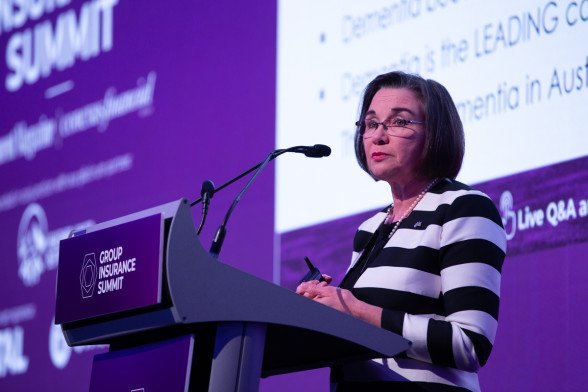 Another #DAI #Hello story, this time from DAI co founder, Kate Swaffer.
Another #DAI #Hello story, this time from DAI co founder, Kate Swaffer.
Hello, my name is Kate Swaffer. I am the current Chair and one of eight co founders of Dementia Alliance International (DAI). I received a diagnosis of the semantic variant of Primary Progressive Aphasia just over 11 years ago at the age of 49, although at the time I was told it was Sementia Dementia when first diagnosed.
The first 12-18 months were spent in fear and even thoughts of suicide. I cried for weeks, expecting the worst. My whole family loss hope for our future together.
Why? Well, not one person, including health care professionals told us there was still a good life to live, even with dementia.
Then through Dr Google, I met the late Dr Richard Taylor online, and first through his writings and then chatting via email and google hangouts, I then started to realised my life could go on. I used to tell him often, he saved my life!
The other life saving thing that happened, was being at university as they simply saw me as a person with acquired disabilities, and supportd be via their Disability Services to continue to live my life! This link takes you to an article I wrote about dementia, rights and disability.
Studying for me was a hobby, so it was meaningful, and fun. It also has the benefits of neuroplasticity, for which there is growing evidence for its value in terms of rewiring our brains.
Then, and now, most people have the very wrong misperception that a person diagnosed with dementia goes from diagnosis, almost immediately to end stage, almost overnight, even many of the health care professionals.
It may be at an unconscious level, but most people who are newly diagnosed are still being Prescribed Disengagement®, also a reason that keeps me motivated to contiue to be an activist for changing what happenes at the time of diagnosis, and campaigning for rehabilitation and other disability support for us all.
At best, we are told to get acquainted with community or aged care services, and to get our end of life affaris in order. We rarely receive referrals to disability services, or other allied health professionals such as speech pathologists to suppot language and communication disabilities.
This lack of post diagnostic support is a major breach of o ur most basic human rights.
I've written books and many articles since being diagnosed with dementia over the years, and continue to do so, as well as being very involved in research about improving the experience of diagnosis and quality of life for all people with dementia. I'm deeply grateful that Richard Taylor wrote and recorded a beautiful review of my first book, What the hell happened to my Brain: Living beyond dementia.
My passion and goal is to empower people with dementia to live more positively and more independently with dementia, for as long as possible, rather than to only go home and prepare to die via aged care. The other is to find a way for us all to work together globally, to advocate for global change.
Note: Whilst many people know me, there are also many new DAI members who may not. Hence, why I am saying #hello.

